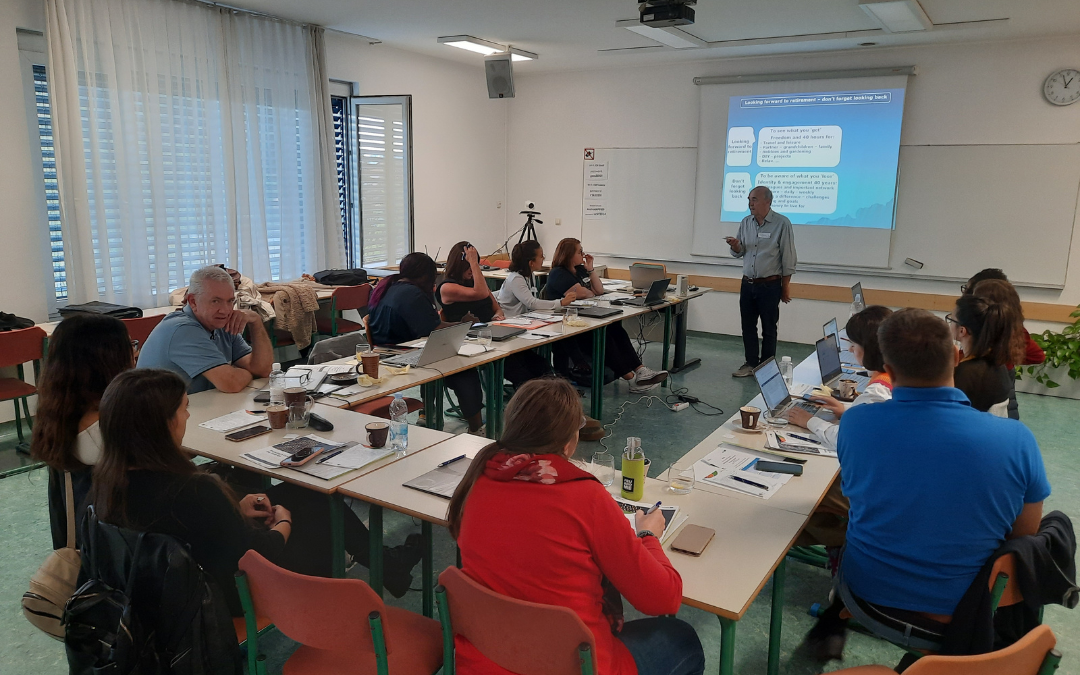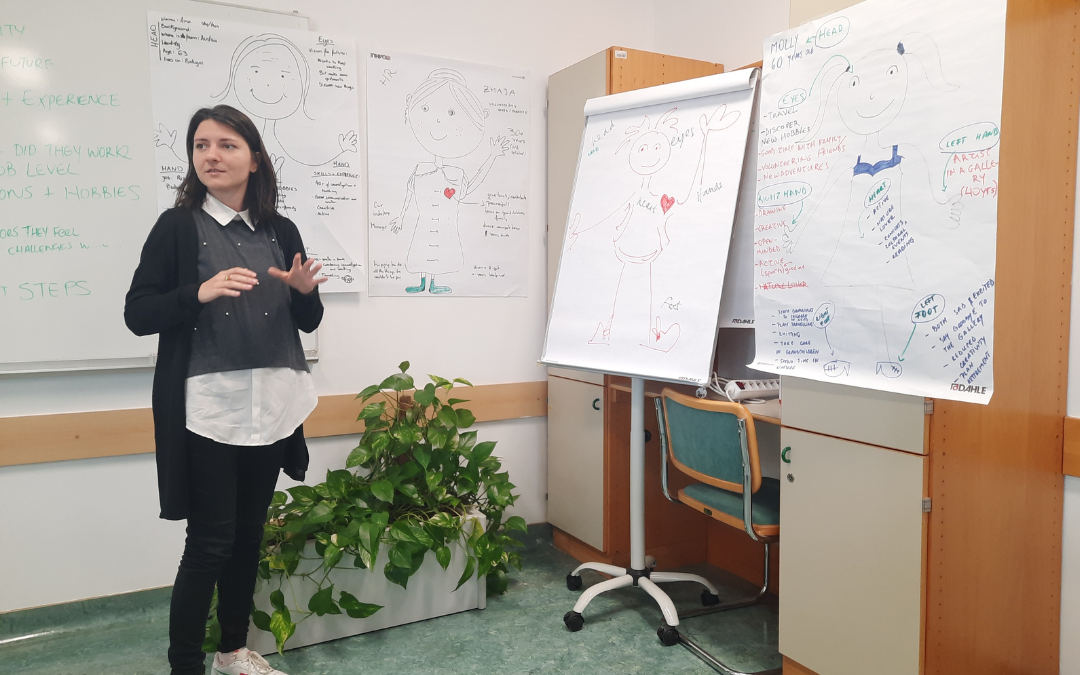With the project, we raise awareness among employers and HR departments about the importance of including seniors in the labour market. The population pyramids of the project’s partner countries show that due to the ageing of the population and the extension of life expectancy, the inclusion of seniors in the work process is inevitable. Employment of seniors will soon no longer be a matter of choice for seniors or employers but a necessity in the global social economy.
Before the training, the project partners conducted and analysed interviews with 53 pensioners and 34 employers/HR experts in their respective countries. We wanted to investigate existing practices on active retirement or supporting the transition to retirement. We then put much effort into preparing an online self-assessment tool for active ageing at the workplace. We set up two online questionnaires. One was intended for older employees before retirement, the other for employers. The advantage of these questionnaires is the immediate feedback on how older employees are prepared for retirement or to what extent employers meet the criteria of age-friendly companies.
The practices of employing the elderly in companies are very different. However, the research on the existing situation shows that only a few companies are systematically dealing with this. Therefore, at the beginning of next year, the participants of the September training will each conduct a pilot training on the inclusion of older employees in the work process for employers or HR departments in their countries. We will talk about age-friendly workplaces and supporting older employees through retirement. The topic is very comprehensive; it also includes raising awareness of stereotypical notions of the elderly in the work process. The pilot training will be supported by materials on a theoretical and practical level. We want to invite interested employers to apply now.
In parallel, in partnership, we will also prepare a manual to promote a career in the third age, which will include visual materials with exercises and interactive resources. It will be aimed at managers, HR departments, career experts and educators. We will conclude the project in August next year with the presentation of the manual and the achieved results.
Jasmina Pakiž (jasmina.pakiz@ciktrebnje.si), the Trebnje AEC



